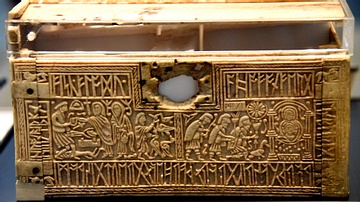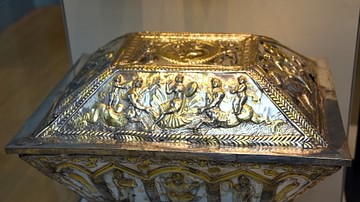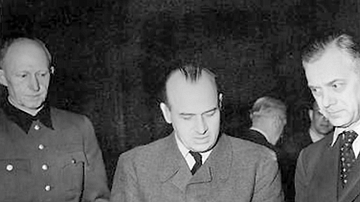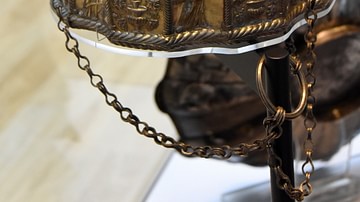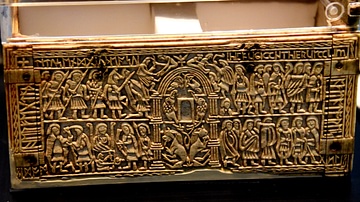Illustration
This spectacular whalebone casket was probably made in the Anglo-Saxon Kingdom of Northumbria. Modelled on early Christian caskets, it was most likely created in a monastery for a significant (perhaps a royal) patron. The casket's imagery, accompanied by runic and Latin inscriptions, come from an array of sources, including Germanic and Roman Legends, the Bible, and historical events. Made in a time where Christianity had not long been established in Anglo-Saxon England, its carvings reflect a wish to convey Christian messages by relating them to the remembered pagan past. Donated by Sir Augustus Wollaston Franks. Early 700s. From Auzon, Haute-Loire, Auvergne, modern-day France. (The British Museum, London).
About the Author
Cite This Work
APA Style
Amin, O. S. M. (2016, October 02). The Franks/Auzon Casket. World History Encyclopedia. Retrieved from https://www.worldhistory.org/image/5794/the-franksauzon-casket/
Chicago Style
Amin, Osama Shukir Muhammed. "The Franks/Auzon Casket." World History Encyclopedia. Last modified October 02, 2016. https://www.worldhistory.org/image/5794/the-franksauzon-casket/.
MLA Style
Amin, Osama Shukir Muhammed. "The Franks/Auzon Casket." World History Encyclopedia. World History Encyclopedia, 02 Oct 2016, https://www.worldhistory.org/image/5794/the-franksauzon-casket/. Web. 19 Apr 2025.



